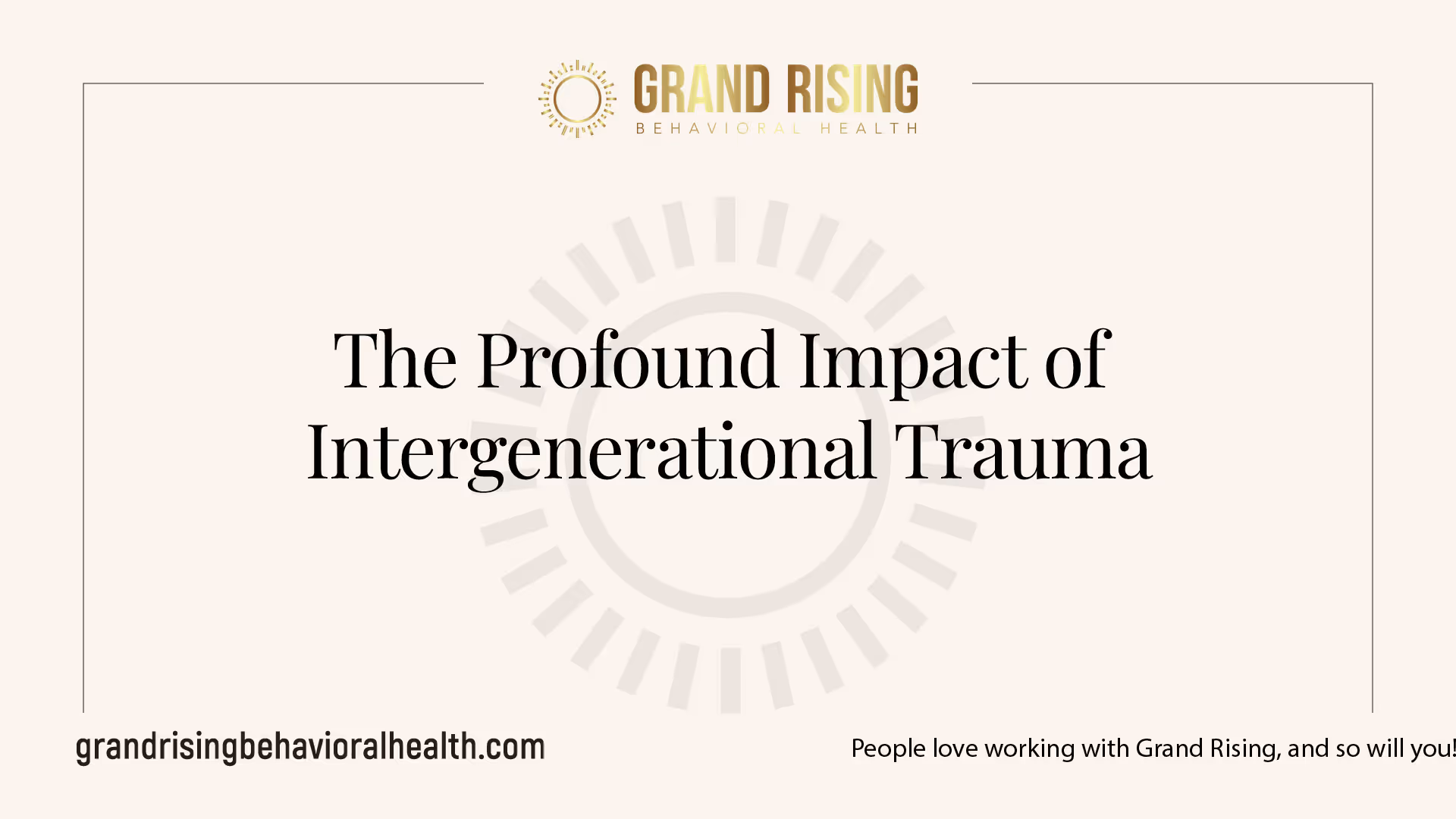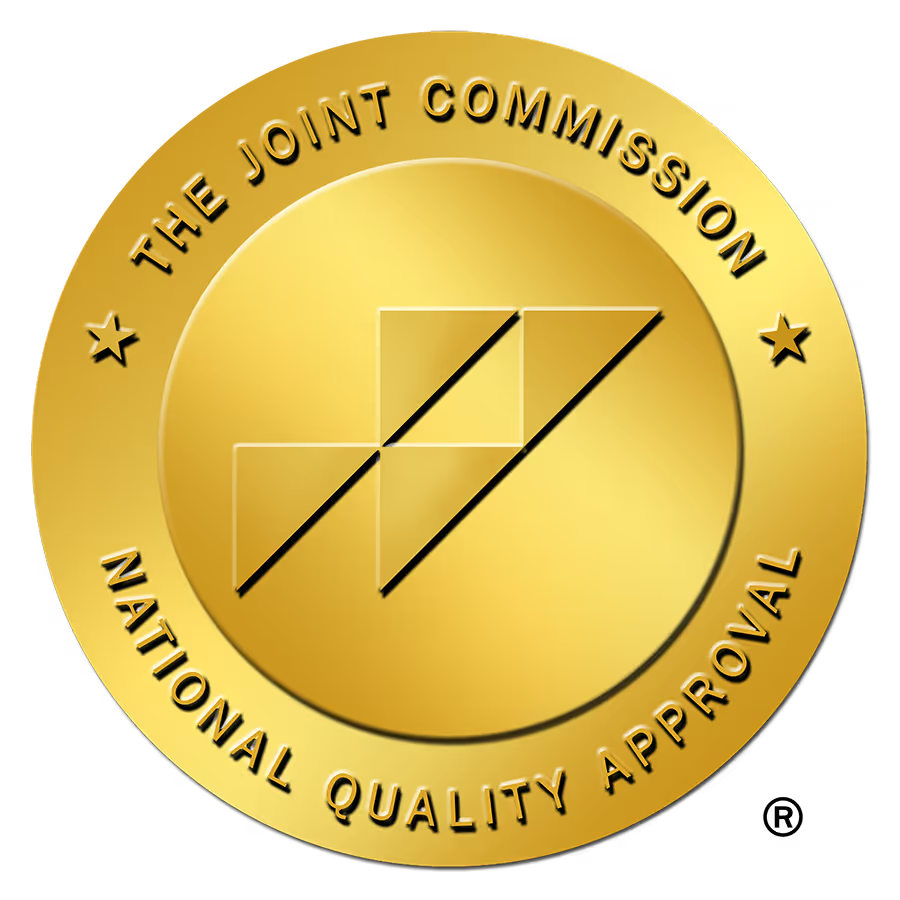The Profound Impact of Intergenerational Trauma
Explore the impact of intergenerational trauma and its effects on health, emotions, and pathways to healing.

Understanding Intergenerational Trauma
Intergenerational trauma refers to the psychological and emotional effects of trauma that are passed down from one generation to the next. This concept sheds light on how the experiences of ancestors can shape the lives of their descendants, leading to various challenges and maladaptive behaviors.

Historical Origins
The idea of intergenerational trauma was first introduced by Vivian Rakoff in the 1960s. Studies focusing on Holocaust survivors demonstrated that their children were more likely to face emotional struggles compared to children whose parents had not experienced such extreme trauma [1]. This foundational research illustrated the profound impact of historical trauma, as the offspring of those who endured genocide may inherit not only a sense of loss but also anxiety and a heightened perception of danger.
Further evidence shows that trauma can create patterns of behavior that are perpetuated across generations. For instance, descendants may continue unhealthy habits learned from their parents, such as yelling at their children, stemming from the unresolved stress experienced by their ancestors.
Epigenetic Transmission
Beyond psychological effects, intergenerational trauma can also involve biological mechanisms through epigenetics. Epigenetic changes can influence how genes are expressed, potentially passing down the effects of trauma from one generation to another.
For example, studies have indicated that sons of American Civil War prisoners of war exhibited higher rates of premature death, which researchers attributed to epigenetic alterations resulting from the stress experienced in POW camps [1]. These findings suggest that trauma can affect the DNA of descendants, leading to physical, mental, and social health problems.
The impact of intergenerational trauma can be exacerbated by resilience factors, social support, and access to resources. Understanding these elements is crucial for addressing the challenges associated with inherited trauma. More detail on these aspects can be found in articles related to resilience factors in trauma recovery and the role of support groups in trauma recovery.
Impact of Intergenerational Trauma
Intergenerational trauma significantly affects both individuals and communities, often manifesting in various ways. This impact can be particularly profound in vulnerable communities, leading to a range of health effects that influence overall well-being.
Vulnerable Communities
Certain groups, such as Indigenous and Black individuals in the US, have faced historical traumas that render them especially susceptible to the effects of intergenerational trauma. These communities may experience symptoms ranging from emotional distress to physical manifestations of stress, as well as chronic illnesses. The influence of such trauma can create a cycle of maladaptive behaviors, where descendants continue learning unhealthy coping mechanisms from their ancestors, such as harsh disciplinary methods like yelling. This cycle can lead to emotional disconnection within families or, conversely, emotional closeness as members bond over shared experiences of trauma [2].
Community TypeExperiences of TraumaIndigenous CommunitiesLoss of culture, land dispossession, systemic oppressionBlack CommunitiesSlavery, discrimination, loss of identityLow-Income FamiliesEconomic hardship, limited access to resources
Health Effects
The impact of intergenerational trauma extends into both mental and physical health. Descendants of those who experienced trauma may exhibit a range of health challenges, as trauma can be passed down through DNA and lead to both physiological and psychological issues [3]. Common health effects include:
These health effects can be exacerbated by social and economic factors such as limited access to healthcare, educational resources, and support systems. Addressing these interconnected issues requires a multidisciplinary approach, considering the historical and cultural context of the trauma.
Overall, understanding the impact of intergenerational trauma is vital for developing effective strategies for healing and recovery. For more insights on trauma recovery strategies, explore our section on strategies for trauma recovery.
Symptoms and Manifestations
Intergenerational trauma can reveal itself through various symptoms and manifestations, affecting emotional well-being and physical health. Understanding these symptoms is crucial for recognizing the profound impact of intergenerational trauma on individuals and communities.
Emotional Responses
Individuals impacted by intergenerational trauma often display a range of emotional responses. Common symptoms include hypervigilance, anxiety, depression, and mood dysregulation. According to Verywell Mind, these symptoms can resemble those seen in individuals suffering from post-traumatic stress disorder (PTSD).
Emotional SymptomDescriptionHypervigilanceExcessive alertness to potential threatsAnxietyPersistent worry or fearMood DysregulationDifficulty regulating emotionsDepressionPersistent feelings of sadness and hopelessnessLow Self-EsteemA diminished sense of self-worthTrust IssuesMistrust of others and difficulty forming bonds
Individuals may also experience panic attacks and fears related to death, which can contribute to a pessimistic outlook on life. Additionally, behaviors such as addiction, domestic violence, and sexual abuse may stem from unresolved trauma.
Physical Health Implications
Beyond emotional distress, intergenerational trauma can lead to significant physical health implications. Trauma and stress are linked to an increased likelihood of chronic pain and certain illnesses. The physiological effects of trauma can alter gene expression, possibly passing down vulnerabilities through generations, particularly related to the hypothalamic-pituitary-adrenal (HPA) axis [6].
Physical SymptomPossible ConditionChronic PainPersistent discomfort and painIllnessesIncreased susceptibility to various health issuesStress-Related DisordersConditions exacerbated by prolonged stress
Understanding these responses is vital for individuals who may be affected by generational trauma. Addressing both emotional and physical symptoms can facilitate healing and support recovery efforts. Additionally, exploring resources such as coping with trauma triggers and strategies for trauma recovery can provide valuable tools for managing these challenges.
Treatment and Healing
Intergenerational trauma can have far-reaching effects on individuals and communities. Addressing this trauma involves a variety of therapeutic approaches and the critical role of support systems.
Therapeutic Approaches
Therapy is an essential factor in healing. Trauma-informed therapy, which takes into account an individual's personal history, is particularly effective for those dealing with the complexities of intergenerational trauma. Connecting with mental health professionals allows individuals to process emotions, build resilience, and navigate relationship challenges.
In therapeutic settings, individuals are often encouraged to acknowledge the validity of their trauma and its origins. This does not solely encompass personal experiences but extends to understanding family histories and cultural narratives. Healing practices that help individuals be in tune with their bodies are also vital. These can include grounding techniques and mindfulness exercises that foster a deeper awareness of one’s emotional and physical state.
The table below highlights various therapeutic modalities beneficial for healing intergenerational trauma.
Therapeutic ModalityDescriptionTrauma-Informed TherapyFocuses on understanding the impacts of trauma on an individual’s life and history.Cognitive Behavioral TherapyAids in recognizing and reshaping negative thought patterns associated with trauma.Family TherapyAddresses dynamics and patterns within family systems that perpetuate trauma.Mindfulness-Based TherapyEncourages present-moment awareness, reducing anxiety and enhancing emotional regulation.Art and Expressive TherapiesUses creative outlets to process and express emotions surrounding trauma.
Healing from generational trauma often requires time, coping mechanisms, and professional guidance.
Importance of Support
Support from friends, family, and community networks plays a vital role in the healing journey. Having a strong support system allows individuals to share their experiences and feelings without fear of judgment. This environment fosters healing and validation, which are crucial for recovery.
Support groups can be particularly effective. They provide a space where individuals can connect with others who have similar experiences. Understanding that they are not alone in their struggles can greatly alleviate feelings of isolation. The role of support groups in trauma recovery is essential, as discussed in our article on the role of support groups in trauma recovery.
Engaging in community activities and cultural practices can also enhance healing. These methods not only honor one’s heritage but also create bonds that reinforce resilience against trauma. By recognizing the influences of both family history and communal ties, individuals may find pathways to reclaim their narratives and foster recovery [5].
As individuals address the impact of intergenerational trauma, the combination of effective therapeutic approaches and robust support systems can help pave a path to healing and renewed strength.
Factors Influencing Intergenerational Trauma
Understanding the various factors that contribute to intergenerational trauma is essential for recognizing its widespread effects. These influences can be categorized into social context and genetic factors.
Social Context
The social environment plays a significant role in the experience and transmission of trauma across generations. Factors such as community support, socioeconomic status, and cultural background can either exacerbate or alleviate the effects of intergenerational trauma. Vulnerable communities, particularly those who have faced historical injustices, are often more susceptible to the ongoing impacts of trauma. For example, disparities in health outcomes have been noted in Black and Indigenous communities, particularly related to chronic conditions and the recent COVID-19 pandemic.
Social FactorsImpact on Intergenerational TraumaCommunity SupportReduced trauma effects, more resilienceSocioeconomic StatusIncreased stress and limited resourcesCultural BackgroundShape responses to trauma and coping mechanisms
Genetic Influences
Research has shown that trauma can alter gene expression, leading to potential health and psychological issues that may be passed down through DNA. This phenomenon, known as epigenetics, highlights how maternal trauma or stress during pregnancy can result in significant biological changes in offspring. For instance, experiences during specific stages of pregnancy can lead to DNA methylation changes, which may influence stress reactivity and brain development. This biological transmission can manifest in various ways, affecting resilience, emotional stability, and even susceptibility to chronic illnesses Stanford Social Innovation Review.
Genetic FactorsEffects on OffspringEpigenetic ChangesAltered stress reactivity and neurodevelopmentHistorical TraumaLong-term psychological and social effects
Both social context and genetic influences are integral to understanding the impact of intergenerational trauma. Addressing these factors can aid in developing strategies for healing and resilience within affected communities. For more insights, consider exploring topics like resilience factors in trauma recovery or cultural considerations in trauma treatment.
Addressing Generational Trauma
Addressing the impact of intergenerational trauma requires a comprehensive strategy that incorporates various disciplines and therapeutic approaches. This multifaceted challenge necessitates collaboration among professionals in fields such as psychology, biology, economics, and education.
Multidisciplinary Strategies
Effectively dealing with intergenerational trauma involves understanding the relationships between social issues and trauma. A multidisciplinary approach is essential and should emphasize historical and cultural narratives to examine and heal the damage caused by trauma. Leaders in social change can identify root causes and factors affecting social issues, enabling the development of effective interventions that address underlying systemic factors and societal disparities contributing to trauma.
DisciplineFocus AreaPsychologyMental health and therapeutic interventionsBiologyUnderstanding biological influences on trauma responsesEconomicsExamining economic impacts of trauma on communitiesEducationProviding resources and support for trauma-informed education
The collaboration among these disciplines enables a more holistic approach, leading to better outcomes in addressing trauma.
Path to Healing
Healing from generational trauma is achievable through a combination of support, professional therapy, time, and effective coping mechanisms. Addressing mental health is crucial in breaking the cycle of trauma transmission to future generations [3]. Various strategies can facilitate healing, including:
A vital element of the healing process is time. It is important for individuals to acknowledge that healing varies across different people and can take substantial effort. Moreover, cultural considerations should be taken into account when tailoring treatment approaches, ensuring they resonate with the backgrounds of those impacted by generational trauma.
By leveraging multidisciplinary strategies and focusing on recovery paths that include professional support and community resources, the full impact of intergenerational trauma can be addressed effectively.
References
[2]:
[3]:
[4]:
[5]:
[6]:
[7]:
[8]:
[9]:
[10]:
More Resources
A team ready to start your journey.
Get in touch — today.
We are a safe space – a haven for exceptional individuals to receive discreet, personalized, in-person treatment and care.
.png)









